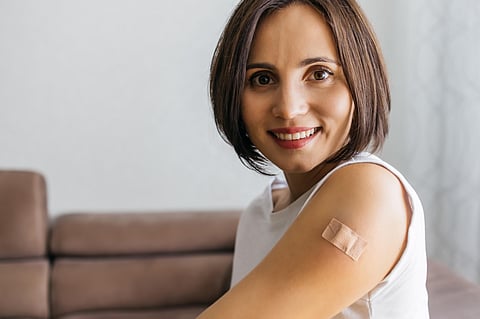WEDNESDAY, Oct. 19, 2022 (HealthDay News) -- For women with severe acute respiratory syndrome coronavirus-2 (SARS-CoV-2) in pregnancy, vaccination after recovery is associated with increased odds of detectable immunoglobulin (Ig)G in infants, according to a study published online Sept. 9 in The Journal of Infectious Diseases.
Mary C. Cambou, M.D., from the University of California, Los Angeles, and colleagues conducted a study in a longitudinal cohort of pregnant women with SARS-CoV-2 infection. Maternal/infant sera were obtained at enrollment (from 256 pregnant women and 135 infants), delivery/birth (148 maternal and 122 neonatal specimens), and six months (45 maternal and 48 infant specimens).
The researchers found that 68 percent of women produced all anti-SARS-CoV-2 isotypes at delivery (IgG, IgM, and IgA); 96 percent had one or more isotype. Higher maternal IgG at labor and delivery was seen in association with symptomatic disease and vaccination before delivery. There was a decrease in detectable IgG in infants, from 78 percent at birth to 52 percent at six months. Significant predictors of detectable IgG in infants at delivery included third-trimester infection, mild/moderate disease, severe/critical disease, and maternal vaccination before delivery (odds ratios, 4.0, 4.8, 6.3, and 18.8, respectively). At six months postpartum, no factors were significant.
"Vaccination following infection and prior to delivery was the strongest predictor of infant antibodies at birth. Notably, infant levels dropped significantly by 6 months, emphasizing the importance of starting the COVID vaccine series as early as 6 months," Cambou said in a statement.
Abstract/Full Text (subscription or payment may be required)


